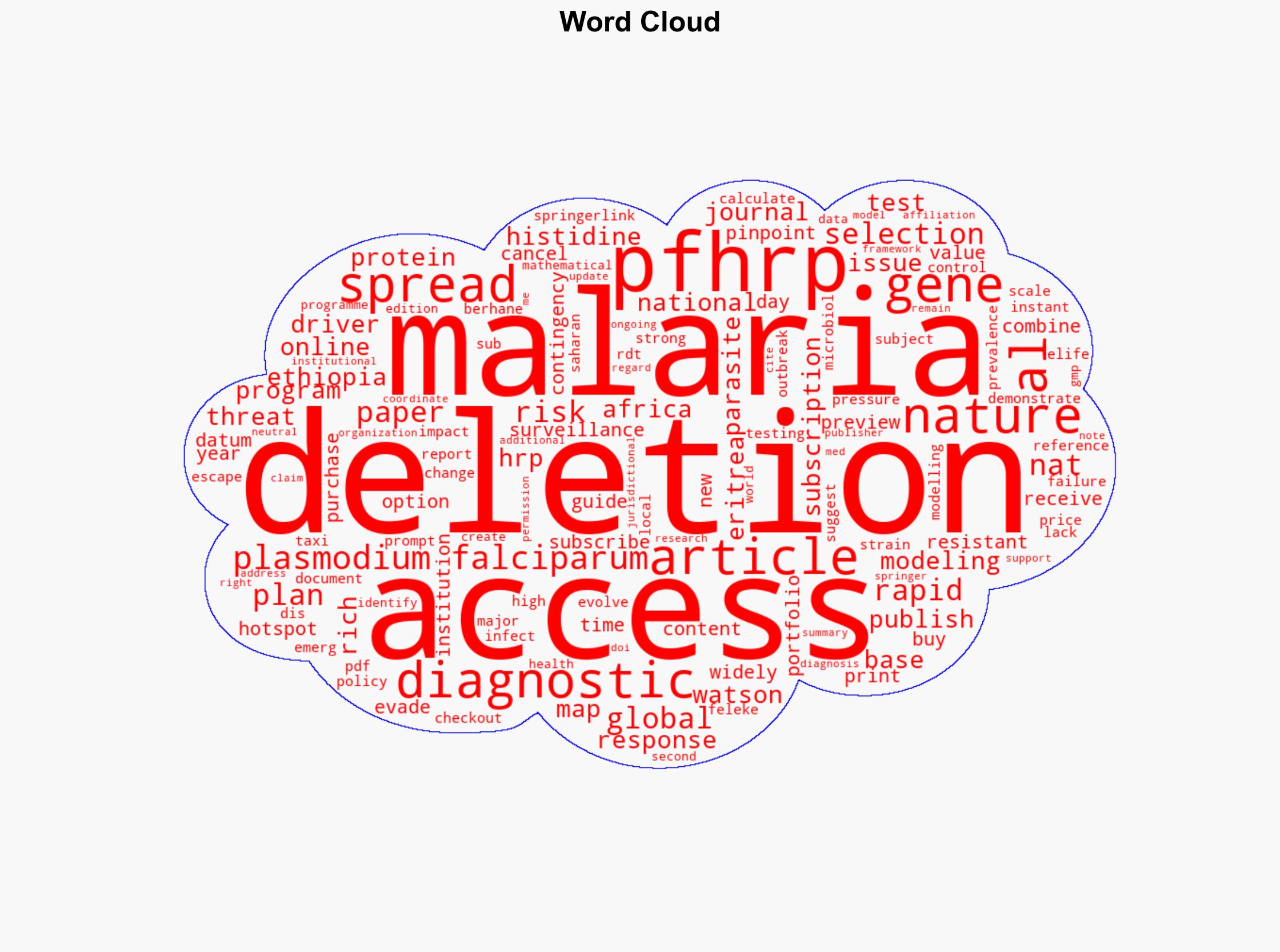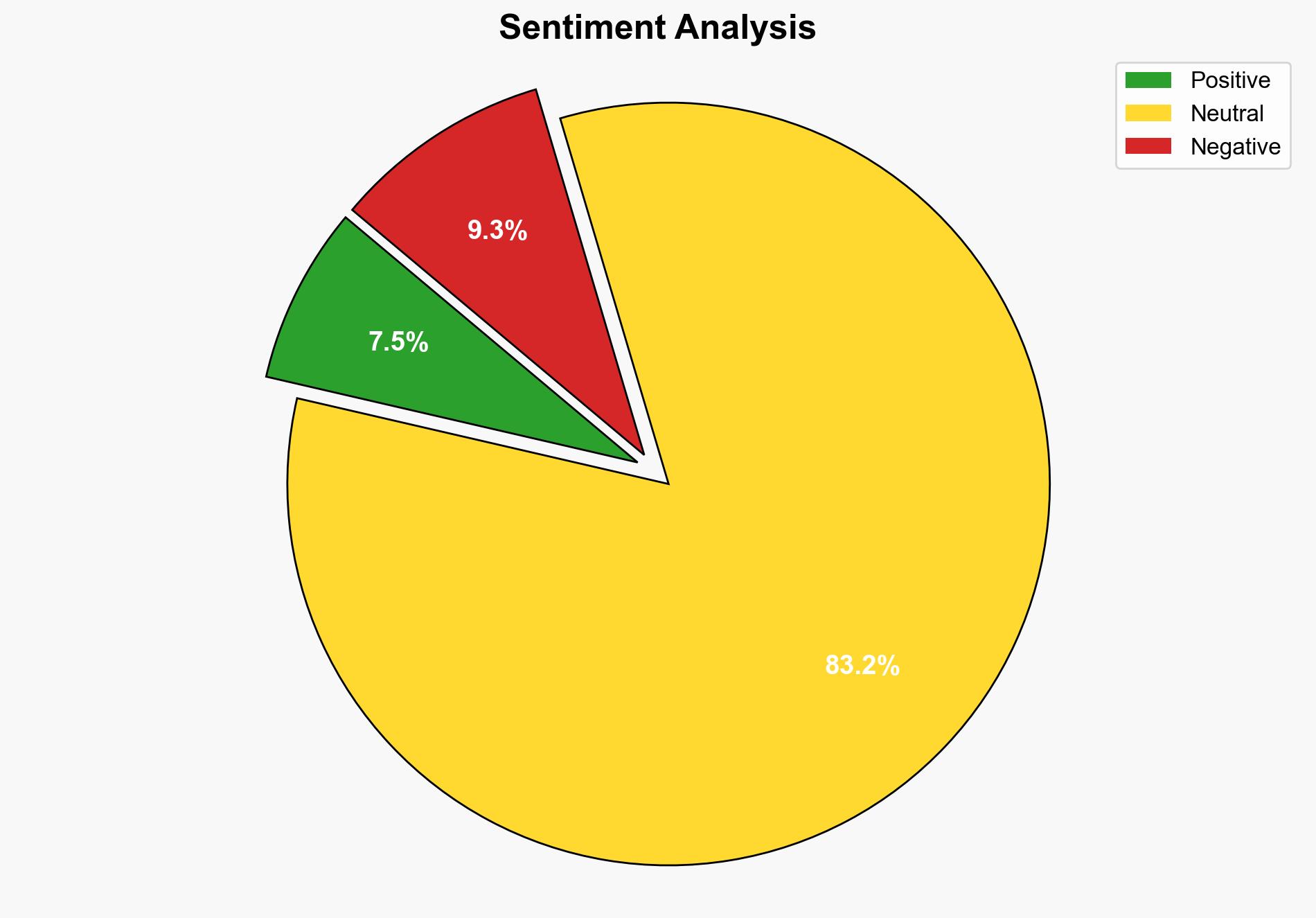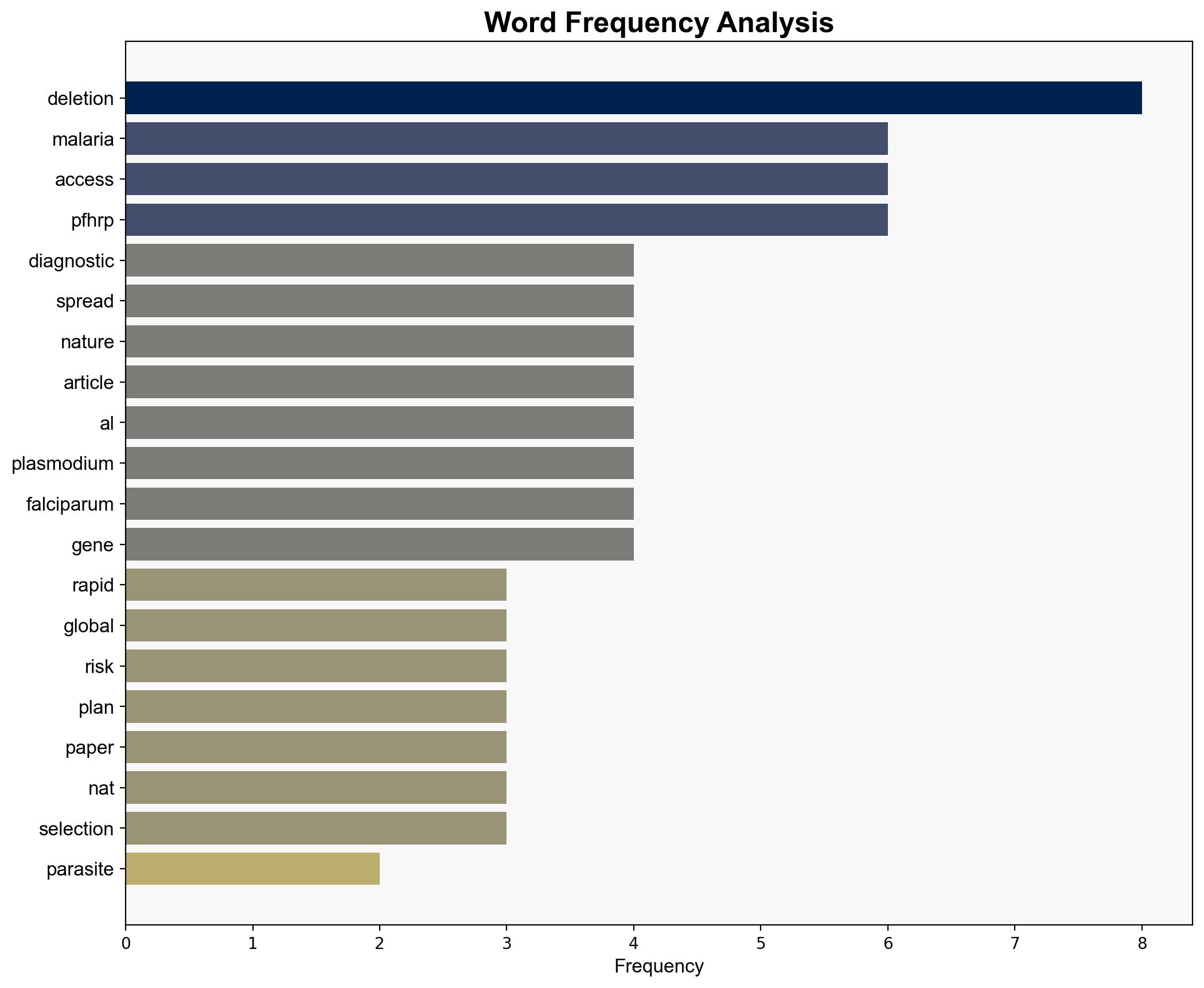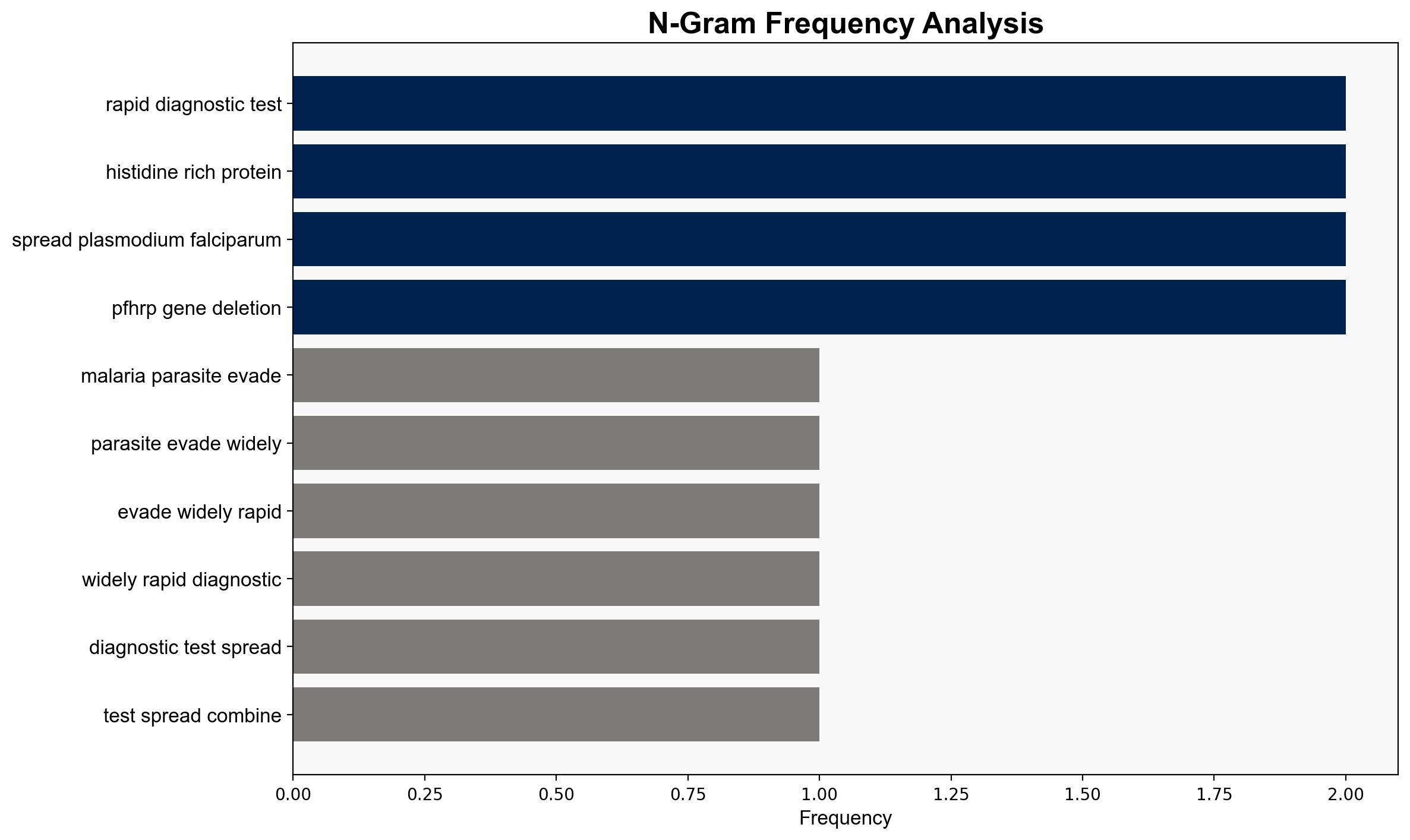Modeling the threat of pfhrp23 gene deletions for malaria diagnosis – Nature.com
Published on: 2025-10-10
Intelligence Report: Modeling the threat of pfhrp23 gene deletions for malaria diagnosis – Nature.com
1. BLUF (Bottom Line Up Front)
The most supported hypothesis is that the spread of pfhrp23 gene deletions in Plasmodium falciparum is driven by strong selection pressures due to reliance on HRP-based rapid diagnostic tests (RDTs). This poses a significant threat to malaria control programs in sub-Saharan Africa. Confidence level: High. Recommended action: Immediate adaptation of diagnostic strategies and enhanced surveillance to track and mitigate the spread of resistant strains.
2. Competing Hypotheses
1. **Hypothesis A**: The pfhrp23 gene deletions are primarily driven by environmental factors and natural genetic drift, with minimal influence from human intervention.
2. **Hypothesis B**: The deletions are predominantly driven by selective pressure from widespread use of HRP-based RDTs, leading to an adaptive advantage for resistant strains.
Using Bayesian Scenario Modeling, Hypothesis B is better supported due to documented rapid spread in regions with high RDT usage and the correlation between diagnostic failure and gene deletions.
3. Key Assumptions and Red Flags
– **Assumptions**: Hypothesis B assumes a direct causal link between RDT usage and gene deletion prevalence. It presumes that alternative diagnostic methods are not yet widely implemented.
– **Red Flags**: Potential bias in data collection, as regions with higher surveillance might report more cases, skewing perception of spread. Lack of comprehensive data on alternative diagnostic methods’ effectiveness.
4. Implications and Strategic Risks
The spread of pfhrp23 gene deletions could undermine malaria control efforts, leading to increased morbidity and mortality. Economically, this may strain healthcare systems in affected regions. Geopolitically, failure to control malaria could destabilize vulnerable areas, leading to broader regional instability. The psychological impact on affected populations could erode trust in public health initiatives.
5. Recommendations and Outlook
- Implement alternative diagnostic methods that do not rely on HRP-based tests.
- Enhance surveillance and data collection to monitor the spread of resistant strains.
- Coordinate international efforts to develop and distribute effective diagnostic tools.
- Scenario Projections:
- Best: Rapid adaptation of diagnostic strategies curtails the spread, maintaining control over malaria.
- Worst: Failure to adapt leads to widespread diagnostic failure, escalating malaria cases.
- Most Likely: Partial adaptation slows but does not fully stop the spread, requiring ongoing efforts.
6. Key Individuals and Entities
– Berhane et al.: Researchers reporting on pfhrp23 gene deletions in Eritrea.
– Feleke et al.: Researchers documenting rapid spread in Ethiopia.
– Watson et al.: Researchers modeling the spread and drivers of gene deletions.
7. Thematic Tags
national security threats, public health, regional focus, disease surveillance, diagnostic innovation





